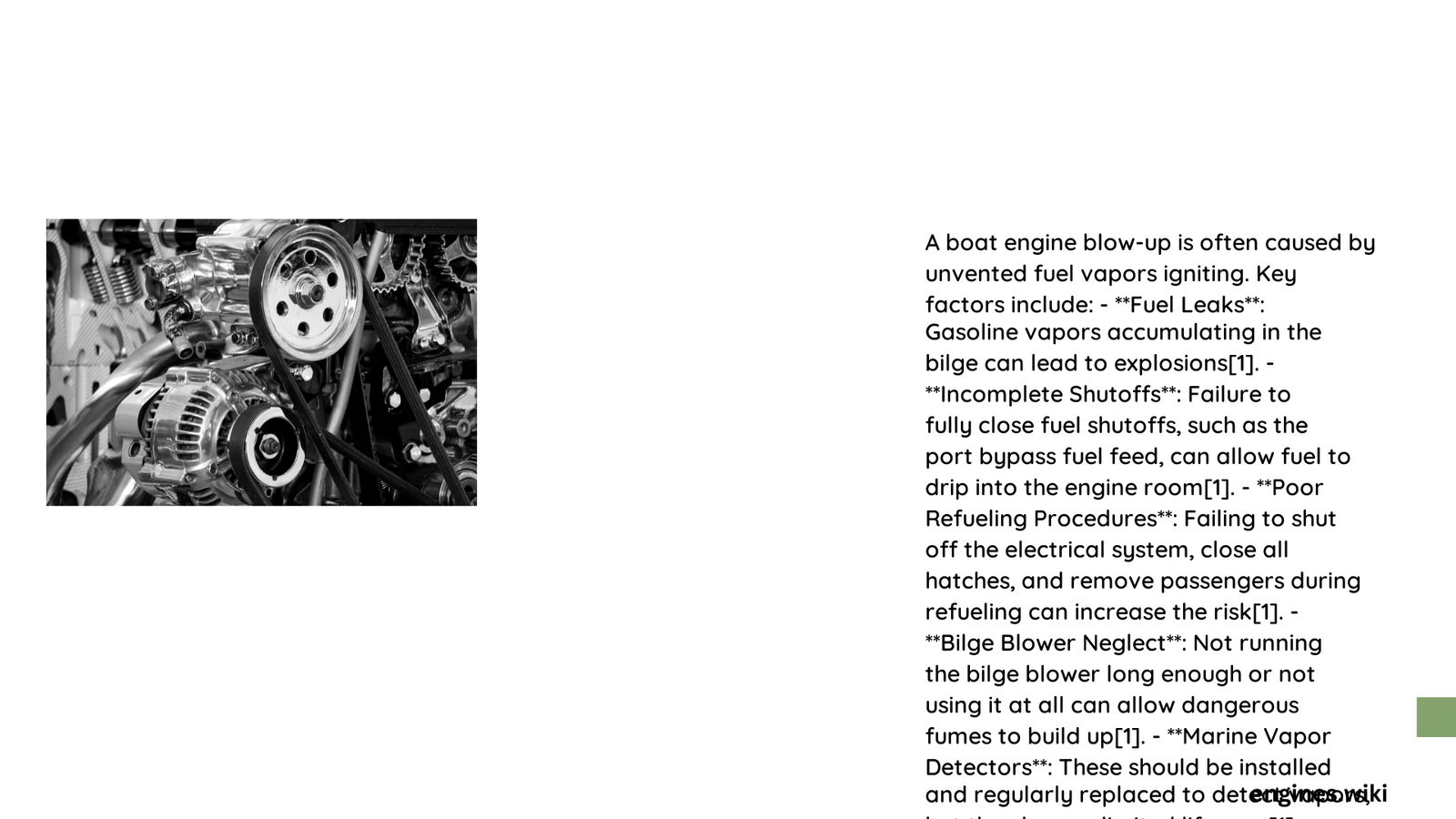Boat engine explosions represent a catastrophic maritime incident where accumulated fuel vapors, electrical malfunctions, or mechanical failures trigger a sudden, destructive event. These incidents can result in significant property damage, potential injuries, and life-threatening situations for boat operators and passengers. Understanding the intricate mechanisms behind such explosions is crucial for preventing these dangerous occurrences and ensuring safe maritime experiences.
What Causes a Boat Engine to Blow Up?
Mechanical Breakdown Triggers
Boat engine explosions typically stem from several critical mechanical and environmental factors:
- Fuel System Vulnerabilities
- Leaky fuel lines
- Improperly secured hose connections
-
Degraded fuel system components
-
Electrical System Complications
- Faulty voltage regulators
- Corroded electrical connections
- Improper wiring installations
Statistical Risk Factors
| Risk Category | Percentage of Incidents |
|---|---|
| Fuel Vapor Accumulation | 42% |
| Electrical System Failures | 29% |
| Mechanical Wear | 18% |
| Other Causes | 11% |
Detailed Mechanism of Engine Explosion
A typical boat engine explosion occurs through a precise sequence:
- Fuel vapors accumulate in the engine compartment
- An electrical spark or heat source ignites the vapors
- Rapid pressure buildup triggers the explosive event
- Catastrophic mechanical failure ensues
How Can You Prevent Boat Engine Explosions?

Proactive Maintenance Strategies
- Regular Inspection Protocols
- Check fuel lines monthly
- Examine electrical connections quarterly
-
Replace aging components preemptively
-
Ventilation Best Practices
- Use blower systems before engine start
- Ensure proper engine compartment airflow
- Monitor humidity and condensation levels
Warning Signs to Monitor
🚨 Critical Red Flags:
– Persistent gasoline odors
– Unusual engine noises
– Unexplained electrical flickering
– Visible fuel line deterioration
What Are the Potential Repair Costs?
Comprehensive Damage Assessment
Repair costs for boat engine explosions can vary dramatically:
- Minor damage: $5,000 – $15,000
- Moderate damage: $15,000 – $35,000
- Extensive damage: $35,000 – $75,000
Factors Influencing Repair Expenses
- Engine type
- Extent of structural damage
- Parts replacement requirements
- Labor complexity
Emergency Response Recommendations
Immediate Action Steps
- Cut engine power immediately
- Evacuate all passengers
- Use fire suppression equipment
- Contact maritime authorities
- Seek professional marine inspection
Technical Insights
Molecular Dynamics of Fuel Vapor Ignition
Boat engine explosions occur when fuel vapor concentration reaches 1.4% – 7.6% in air, creating an optimal combustion environment. This narrow range represents a critical threshold where minimal spark can trigger catastrophic chain reactions.
Safety Investment Perspective
Investing in preventative maintenance typically costs 10-15% of potential repair expenses, making proactive care significantly more economical than reactive solutions.
Expert Recommendations
- Conduct annual professional inspections
- Maintain comprehensive maintenance logs
- Upgrade safety equipment regularly
- Educate all boat operators on potential risks
Conclusion
Understanding boat engine explosion mechanisms empowers maritime enthusiasts to implement robust safety protocols, potentially saving lives and preserving valuable marine assets.
